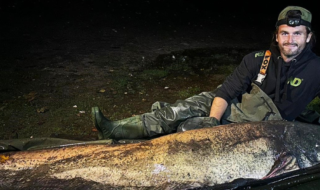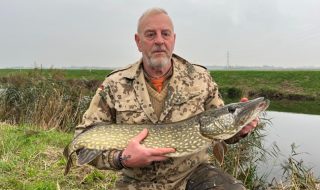Fish Legal will confront 3 Water and Sewerage companies at the Royal Courts of Justice, London, for a 4 day trial from 24 – 27 November 2014 that will have industry-wide implications, to argue that the public should have a right under ‘freedom of information law’ to know about the companies’ activities that affect the environment in England and Wales.
The November hearing could be pivotal in changing the way the Environmental Information Regulations 2004 are applied to these, and other, now privatised utilities, to make them as transparent about their activities as organisations in the public sector (which they were formerly part of). Fish Legal wants to access environmental information on behalf of its angling membership, because the water industry does untold damage to fisheries and the water environment, which is not fully disclosed to those affected, or to the Environment Agency.
This is a battle Fish Legal has fought since 2009, when it asked various water companies to come clean about the sewage they were dumping into rivers and coastal waters through a network of combined sewer overflows, but the companies refused to accept the public’s right to know. Fish Legal’s lawyers, representing member clubs, riparian and fishery owners, have often been refused access to water company environmental information (e.g. related to pollution incidents) under the 2004 Regulations. The Regulations would apply a strong duty to disclose requested information that they hold and within a fixed time-period, but the water companies currently reject this in favour of providing what they want to give on a voluntary basis, and within their own time frame. Fish Legal believes this undermines transparency and public accountability for widespread poor environmental performance.
In 2013 Fish Legal took its case to the Grand Chamber of the Court of Justice of the European Union (CJEU) in Luxembourg, to define key points of EU law underpinning the operation of the 2004 Regulations. The UK government intervened and took a stand supporting the companies’ ‘right to secrecy’. However, the CJEU’s Judgement now provides a legal test that can be applied to the water companies to decide if they are subject to a disclosure duty to the public. Argument over this will be heard by the Upper Tribunal at the Royal Courts of Justice in November.
However, the Secretary of State for the Environment, Food and Rural Affairs has intervened once again and issued its own judicial review challenge against the jurisdiction of the Upper Tribunal to hear the case. A move Fish Legal sees as an obvious attempt to derail its appeal. This means that Fish Legal must now fight two sets of proceedings to succeed.
William Rundle, Head Solicitor at Fish Legal conducting this case, said:
“This is a major case for Fish Legal members which has taken many years to come to fruition, but if we succeed it would be a “game-changer” in our relations with the Water and Sewerage Industry. It would make our attempts to conserve the environment and uphold the rights of anglers much easier, because these utilities would be legally required to reveal all when asked about pollution they may have caused, rather than be able to maintain secrecy if it suited them. Success would also give the wider public a ‘right to know’ by being able to get environmental information from these companies on the matters that concerned them, and could enforce that right if necessary.”
He further said:
“I firmly believe that greater transparency within this multi-billion pound Industry is desperately needed, as it will be a driving force for greater accountability to the public, and thereby better environmental performance – which is in all our interests.”
Mark Lloyd, Chief Executive of the Angling Trust & Fish Legal said:
“This very lengthy, expensive, but vitally important legal battle has been funded entirely by the subscriptions and donations of tens of thousands of anglers, angling clubs and fisheries who are members of the Angling Trust & Fish Legal. Our members make this pioneering legal work possible and we are very grateful to them for their generous support to enable Fish Legal to take on the twin behemoths of the water industry and the government.”






